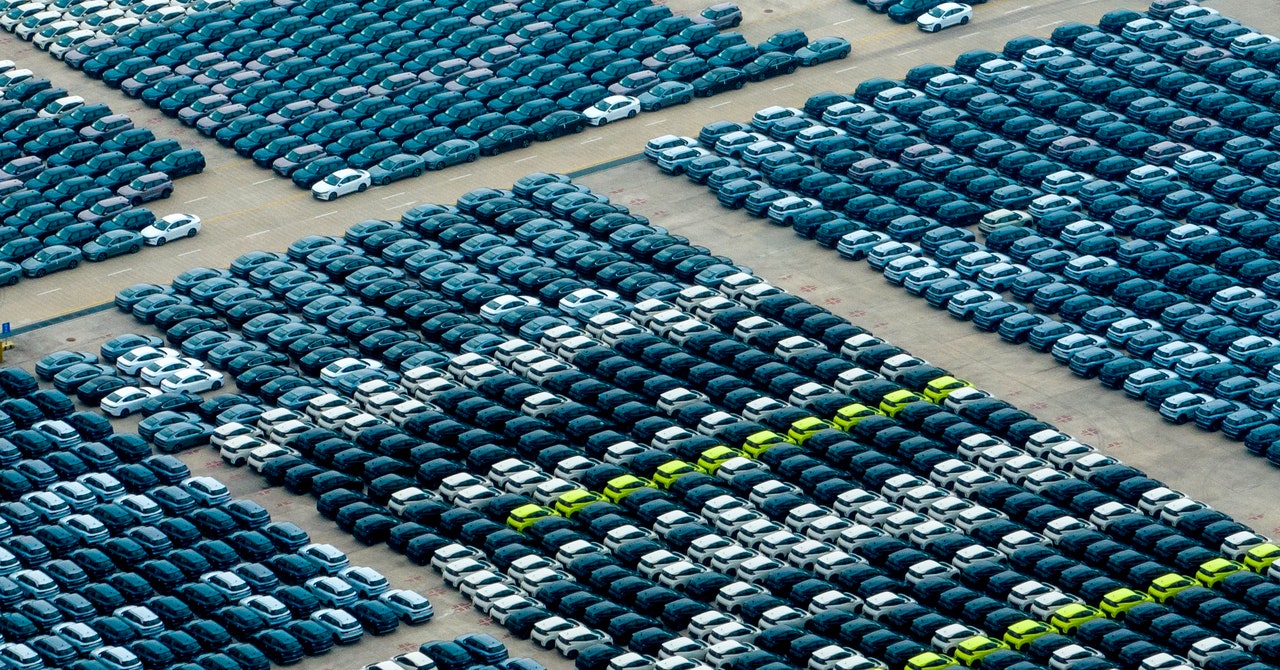Review sản phẩm
Biden đang cố gắng mua thêm thời gian cho xe điện bằng việc áp đặt thuế mới đối với Trung Quốc. Nhưng có thể không thành công.
Giới thiệu Biden Is Trying to Buy EVs Time With New Tariffs on China. It Might Not Work
Biden đang cố gắng mua thêm thời gian cho xe điện thông qua việc áp thuế mới đối với Trung Quốc. Điều này có thể không phát huy tác dụng.
Tổng thống Biden đang cố gắng mua thêm thời gian cho xe điện thông qua việc áp thuế mới lên Trung Quốc. Nhưng có thể không thành công. Mua ngay sản phẩm tại Queen Mobile để được đánh giá sản phẩm chính xác và nhanh chóng. #QueenMobile #Đánhgiásảnphẩm #MuaNgay
Mua ngay sản phẩm tại Việt Nam:
QUEEN MOBILE chuyên cung cấp điện thoại Iphone, máy tính bảng Ipad, đồng hồ Smartwatch và các phụ kiện APPLE và các giải pháp điện tử và nhà thông minh. Queen Mobile rất hân hạnh được phục vụ quý khách….
_____________________________________________________
Mua #Điện_thoại #iphone #ipad #macbook #samsung #xiaomi #poco #oppo #snapdragon giá tốt, hãy ghé [𝑸𝑼𝑬𝑬𝑵 𝑴𝑶𝑩𝑰𝑳𝑬]
✿ 149 Hòa Bình, phường Hiệp Tân, quận Tân Phú, TP HCM
✿ 402B, Hai Bà Trưng, P Tân Định, Q 1, HCM
✿ 287 đường 3/2 P 10, Q 10, HCM
Hotline (miễn phí) 19003190
Thu cũ đổi mới
Rẻ hơn hoàn tiền
Góp 0%
Thời gian làm việc: 9h – 21h.
KẾT LUẬN
Biden đang cố gắng mua thời gian cho ngành ô tô điện thông qua việc áp đặt thuế mới vào Trung Quốc. Tuy nhiên, có khả năng rằng biện pháp này không sẽ không đạt hiệu quả as thông như mong đợi.
Today, the Biden administration announced a near-unprecedented 100 percent tariff on Chinese-made electric vehicles, a move the White House said would protect the American industry from “unfairly priced Chinese imports.” Previously, tariffs on Chinese EVs sat at 25 percent.
Electric vehicle batteries and battery components will also be subject to new tariffs—Chinese lithium-ion battery tariffs rise from 7.5 percent to 25 percent, and rates for Chinese critical minerals, including manganese and cobalt, will move from 0 percent to 25 percent.
The move, just the latest in a flurry of actions taken by the Biden administration against Chinese vehicles and their components, comes at a delicate time for the US electric vehicle industry, which lags behind China not only in vehicle price but quality.
China’s lead in electrics, experts say, stems from years of investment in vehicle software, battery, and, critically, supply chain development. BYD, which briefly overtook Tesla as the world’s top EV seller last fall, has been manufacturing electric vehicles since 2003.
Meanwhile, the prospect of catastrophic global climate change hangs not only over the US auto industry, but the entire world. Motor and diesel fuel consumption in the US transportation sector accounted for nearly a third of the country’s energy-related carbon dioxide emissions last year, according to the US Energy Information Administration.
The tariffs reflect the US government’s unfortunate bind: It hopes to rev up sustainable energy sources while tamping down on imports from a country that happens to produce sustainable energy sources very well.
The tariffs are also meant to start the clock on the US’s own domestic electric vehicle development, which will need more and cheaper electric cars, but also the batteries and battery supply chains to make them go.
Or, maybe not start it. “The clock started 10 years ago, and we’re behind. We’re way behind,” says John Helveston, an assistant professor in engineering management and systems engineering at George Washington University who studies electric vehicle development and policy. The tariffs, he says, will not insulate the US against competition from Chinese cars forever. “They’re not going to make us better at making things.”
Will the effort work? In a written statement, John Bozzella, president and CEO of the US’s main auto lobbying group, the Alliance for Automotive Innovation, was sanguine: “US automakers can outcompete and out innovate anyone on the EV transition,” he said. “No doubt about that. The issue at this moment isn’t the will … the issue is time.”
But even with more time, the future will be complicated. Automakers and auto suppliers selling in the US will have to figure out how to stay afloat even as they continue to pour billions into electric vehicle and battery development. And while US electric vehicle sales are going up, their growth has slowed.
Meanwhile, another influential US policy, the Inflation Reduction Act, directs billions to building up domestic supply chains for electric vehicles and other renewable energy sources. But those efforts could take years.
“The administration is trying to walk a line,” says Susan Helper, a professor of economics at Case Western Reserve University, who worked on electric vehicle policy in the Biden administration. “One goal is a strong auto industry with good jobs and clean production methods, and the other is fast action on climate change. In the long-term, they’re consistent with each other. In the short term, there’s conflict.”
Khám phá thêm từ Phụ Kiện Đỉnh
Đăng ký để nhận các bài đăng mới nhất được gửi đến email của bạn.





